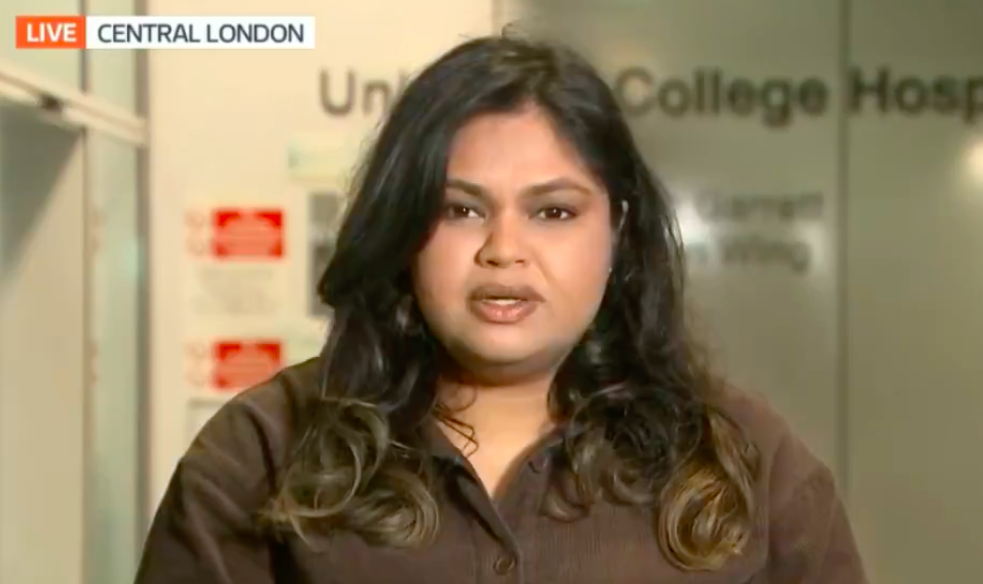"The biggest resource in the NHS is the workforce"

This Wednesday morning junior doctors started a 3-day strike, part of a 216-hour full walkout across dates in December and January, which marks the longest doctors strike in NHS history.
Without a credible offer from government, thousands of junior doctors are back on picket lines across England demanding the Health Secretary value their work and restore their pay, which has been cut by 26% since 2008.
Sumi Manirajan, a doctor and Deputy Co-chair of the UK Doctors Committee, was on the broadcasting rounds this morning and perfectly summed up the importance of paying junior doctors better, for the future of the NHS.
“We go to medical school for five years so we can treat patients, make them better and improve their quality of life. No doctor wants to go on strike,” Dr Manirajan told Good Morning Britain.
“The government have pushed us to this, with 15 years of chronic underfunding of the NHS. A survey showed that 80% of the public knew that the NHS was underfunded and want the government to fund it properly.
“The biggest resource in the NHS is the workforce. And if you don’t fund the workforce, you aren’t going to have a healthy system.”
The BMA junior doctors’ union has once again called on the Health Secretary to present a credible offer to them so they can call off the strike action. Once again they are waiting.
“It is extremely disappointing to be in this position,” wrote BMA junior doctors committee co-chairs Dr Robert Laurenson and Dr Vivek Trivedi.
“We had hoped that after a much-improved tone and approach from the new Health Secretary, Ms Atkins, we were close to a solution to this dispute. We were encouraged by her insistence last week that even after our mutually agreed deadline had passed and we were forced to call new strikes, we had still not heard her ‘final offer’.
“We have spent the last two weeks awaiting this final offer in the hope it would be the long-awaited credible offer we could put to our members. Unfortunately, we are still yet to hear it.”
Pay cuts for junior doctors have been 10 times worse than the average worker, with the BMA union demanding pay restoration to bring workers’ pay to £20 an hour. The recent government offer would only increase their hourly pay by 50p, to £16 an hour.
Dr Manirajan, who works in the emergency department, also shared an anecdote about a patient who had waited over 12 hours to be seen in A&E on a non-strike day for a chest pain, due to staff shortages which have affected workforces across the NHS.
This Monday it was also announced that three other sets of doctors voted overwhelming in favour of strike action, including junior doctors in Wales, consultants who secured an extended strike mandate, and SAS doctors who voted to strike for the first time in 60 years.
Others on social media are pointing out the irony that, on the same day, it was announced MPs are in-line for an inflation busting pay rise of 7.1% in the new year, higher than the government’s offer to nurses and ambulance workers.
Hannah Davenport is news reporter at Left Foot Forward, focusing on trade unions and environmental issues
Left Foot Forward doesn't have the backing of big business or billionaires. We rely on the kind and generous support of ordinary people like you.
You can support hard-hitting journalism that holds the right to account, provides a forum for debate among progressives, and covers the stories the rest of the media ignore. Donate today.



